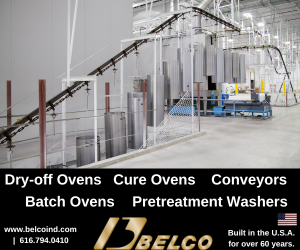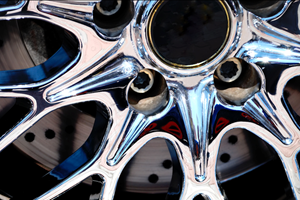How to Minimize Appearance Issues in Liquid Coatings
Q. What can you recommend to minimize appearance issues problems? PPG’s Michael Kowalski explains the controlled and uncontrolled variables that affect liquid coatings.
Q. Even with quality-control processes in place in our shop, we continue to have persistent appearance issues during our application of liquid coatings. What can you recommend to minimize these problems?
A. Because of numerous variables, both controlled and uncontrolled, in a liquid coatings process, it’s simply not feasible to eliminate all issues at all times. However, knowing what causes appearance problems in the first place and the steps you can take to prevent them is a critical element of a two-pronged strategy to troubleshoot the most pressing problems any shop will encounter.
First let’s examine three of the most prevalent coatings issues and their symptoms, causes and resolutions, as well as preventive measures that can be taken to avoid future occurrences.
Air entrapment (or solvent popping) occurs when the wet coating film contains bubbles, some of which pop on the surface of the coating.
Rough appearance (or orange peel) is exactly that: The coating has a rough appearance, similar to the outside layer of an orange.
Overspray (or melt-in) is evident when the coating appears to have dirt on its surface but that “dirt” is the same color as the primary coating.
Identifying Root Causes: The Six Ms
Fixing defects and resolving issues is only one-half of a comprehensive approach to improving the quality and efficiency of your liquid coatings process. The second half entails a thorough investigation of problems to determine potential root causes. To get a complete picture of the process and, thereby, more accurately pinpoint possible causes, your investigation should cover these six categories:
Man. Interview all personnel who were involved in either the coating process or a related upstream activity. Find out each person’s role, and determine the impact of that role on the process. For example, what is the person’s spray technique? Was the part wiped before spraying? Did the person bring any contaminant into the environment?
Material. Inspect all materials, including the paint and the substrate, as well as less obvious materials such as gloves, sandpaper, chemicals and filters, for incompatibility potential with the coating process.
Method. The method comprises the steps of the coating process, the application stages and standard operating procedures (SOPs) for part preparation, grounding, applicator cleaning and paint recirculation. Review all methods to ensure there are no changes or updates that would adversely affect the coating process.
Measurement. How data are collected, the instruments that are used and the process-control log books all are forms of measurement that must be analyzed in an investigation. Potential root causes that could be identified include improperly calibrated dry-film-thickness meters, damaged equipment or flaws in the data-collection process that lead to an adjustment to the coating system that is out of specification.
Machine. Test all equipment for defects such as worn tips or nozzles in the spray gun, plugged air holes, loose fittings or leakages, and broken gages. These can lead to the introduction of foreign matter or an incorrect equipment setup that might be incompatible with the coating process.
Mother Nature. Thoroughly check the compatibility of the coating system with the environment in which spraying occurred. Temperature, humidity, and air and water purity all can affect the integrity of liquid coatings applications. For example, extreme ambient temperatures can cause wetting failures. Contaminants in paint-spray air lines can lead to blistering, solvent popping, cratering and other visible surface defects. Formulations might have been prepared incorrectly for summer and winter conditions.
By knowing the symptoms and causes of issues and defects, initiating proactive measures to prevent them from occurring, and maintaining a robust investigative procedure to identify their root causes, your shop will minimize problems while maximizing quality.
Michael Kowalski is a product manager of industrial coatings at PPG Industries. Visit ppgindustrialcoatings.com.
Related Content
Zinc Phosphate: Questions and Answers
Our experts share specific questions about zinc phosphate and pretreatment
Read MoreAn Overview of Electroless Nickel Plating
By definition, electroless plating is metal deposition by a controlled chemical reaction.
Read MoreA Chromium Plating Overview
An overview of decorative and hard chromium electroplating processes.
Read MoreTop Reasons to Switch to a Better Cleaning Fluid
Venesia Hurtubise from MicroCare says switching to the new modern cleaning fluids will have a positive impact on your cleaning process.
Read MoreRead Next
Delivering Increased Benefits to Greenhouse Films
Baystar's Borstar technology is helping customers deliver better, more reliable production methods to greenhouse agriculture.
Read MoreEpisode 45: An Interview with Chandler Mancuso, MacDermid Envio Solutions
Chandler Mancuso, technical director with MacDermid Envio discusses updating your wastewater treatment system and implementing materials recycling solutions to increase efficiencies, control costs and reduce environmental impact.
Read MoreEducation Bringing Cleaning to Machining
Debuting new speakers and cleaning technology content during this half-day workshop co-located with IMTS 2024.
Read More










.jpg;maxWidth=300;quality=90)













